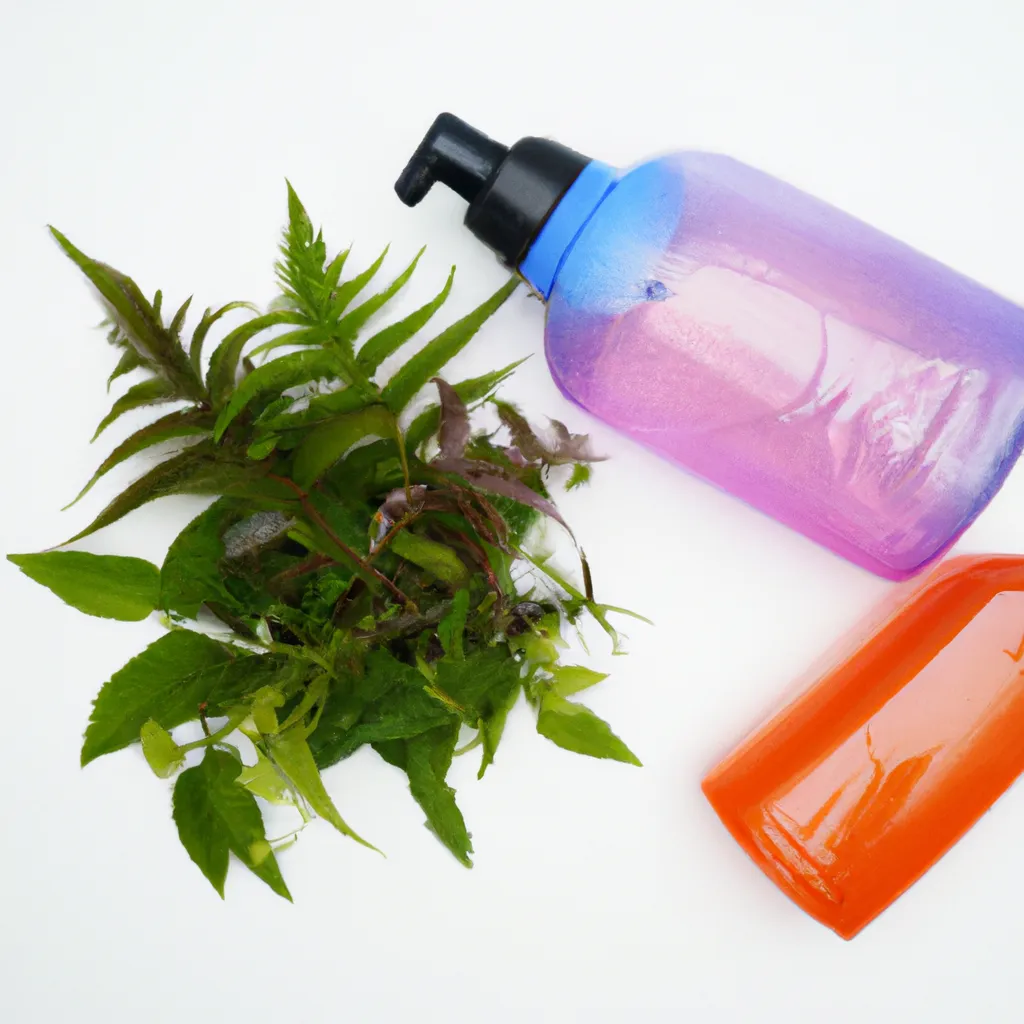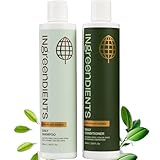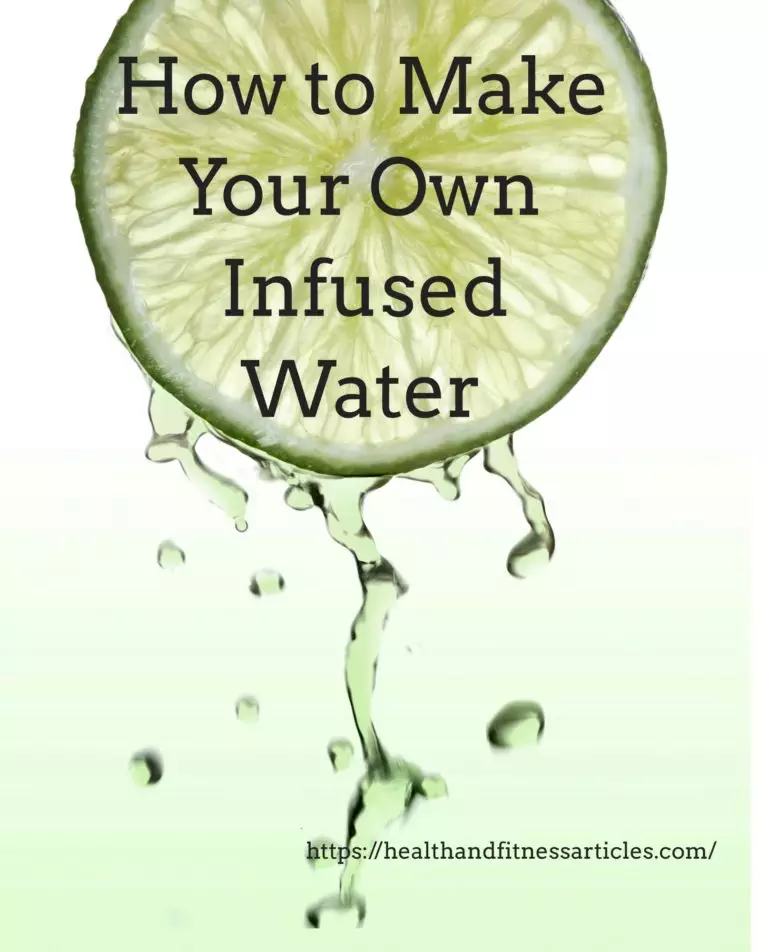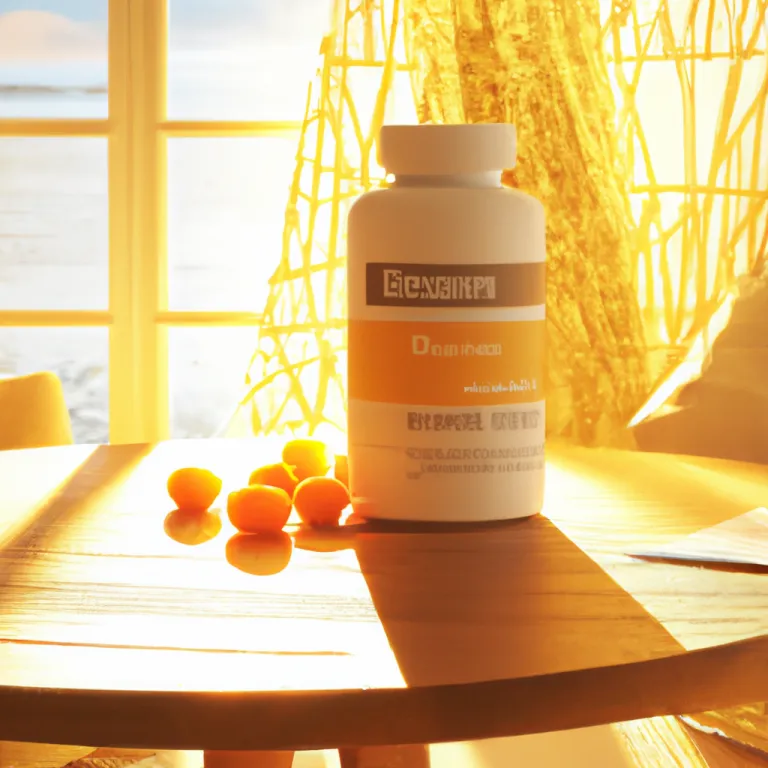Is Your Shampoo Making You Sick? Uncover Hidden Allergens!
Shampoo allergies Key Points
Be aware of allergic reactions, such as contact allergies, to shampoos; if you notice skin irritation, an irritated scalp, or unusual symptoms like scalp dermatitis, consider switching products.
Familiarize yourself with common symptoms like itching, redness, or hair loss that might signal allergic skin reactions or severe skin irritation to brand shampoos, including allergic contact dermatitis.
Check the ingredient label for harmful substances like sulfates and parabens, which are common shampoo ingredients that can cause health issues over time, including shampoo allergy symptoms and allergic skin reactions.
Opt for shampoos labeled as hypoallergenic or free from synthetic fragrances to reduce the risk of different chemical allergy symptoms and adverse reactions to the product.
Conduct patch tests before trying new products to ensure they are safe for your skin and to avoid shampoo allergies or allergic reactions to potential allergens.
Educate yourself about safer alternatives, such as natural shampoos, which may be less likely to cause health problems or an allergic reaction to an allergen in the product.
- Body Building: This shampoo supports an energized scalp and thicker, fuller-looking hair and helps build body in fine/thinning hair. It cleanses hair from root to tip
- Thoughtfully Made: Comprised of a blend of biotin, saw palmetto, quinoa protein, and vitamin E, our signature botanicals are carefully curated to help your hair thrive
- Formulated Without: This shampoo is packaged in a 100% recycled bottle and is formulated without parabens, sodium laureth sulfate, synthetic colors, or synthetic fragrances
- Certifications: All our products are cruelty-free and Leaping Bunny Certified, providing assurance of no animal testing. This shampoo is NSF Certified as a personal care product containing organic ingredients
- EWG Verified: The Environmental Working Group VERIFIED mark on a product confirms it’s free from EWG’s chemicals of concern and meets the EWG’s strictest standards for your wellbeing
Last update on 2025-12-19 / Affiliate links / Images from Amazon Product Advertising API
Many people trust their shampoo products to keep their hair clean and healthy despite the risk of an allergic reaction.
However, some may not realize that certain ingredients can harm them, potentially causing an allergic reaction or a shampoo allergy.
Chemicals in shampoos can cause skin irritations, allergic reactions, allergies, and even long-term health issues.
The contrast between shiny hair and hidden dangers, such as shampoo allergy and allergic reactions, is alarming.
Is your shampoo making you sick? It’s time to dig deeper into what you’re putting on your scalp to avoid allergic reactions.
Understanding the potential risks can empower you to make better choices for your hair care routine. Your health matters, so let’s uncover the truth behind those bottles on your shelf.
Understanding Allergic Reactions
What is an Allergic Reaction
Allergic reactions occur when the immune system overreacts to foreign substances. These substances, known as allergens, can be found in many products, including shampoos.
The immune system mistakenly identifies these harmless substances as threats. This response can trigger various symptoms.
Reactions can range from mild to severe. Mild reactions may include itching or rashes.
Severe reactions can lead to anaphylaxis, a life-threatening condition that requires immediate medical attention. Recognizing allergic reactions early is crucial.
Early detection can prevent complications and serious health issues.
Common Signs of Allergies
Common allergy symptoms include skin rashes, hives, and respiratory issues.
Skin reactions often appear as red, itchy patches. Respiratory symptoms may involve sneezing, coughing, or difficulty breathing.
Symptoms can vary significantly from person to person. One individual might experience a minor rash, while another could face severe respiratory distress.
This variability makes personal experiences unique.
If severe symptoms occur, seek prompt medical attention.
Difficulty breathing or swelling of the face and throat are signs of a serious reaction. Ignoring these signs can lead to dangerous situations.
Recognizing Symptoms from Shampoo
Skin Irritations
Skin irritations can appear in various forms.
After using certain shampoos, individuals may notice redness, itching, or swelling on their scalp or face.
These symptoms often arise from harsh chemicals or allergens present in shampoo formulas.
Persistent skin irritations may signal an underlying shampoo allergy or sensitivity. For example, someone might experience a rash that disappears after a few days.
This could indicate that the shampoo contains ingredients the body cannot tolerate.
Consulting a dermatologist is advisable for anyone facing chronic skin issues related to shampoo use.
A specialist can help identify the cause and suggest suitable alternatives.
Respiratory Issues
Certain shampoo ingredients can also lead to respiratory problems. After washing their hair, individuals might experience wheezing, coughing, or even shortness of breath.
Fragrances and preservatives often trigger these reactions.
People with asthma or other respiratory conditions are particularly susceptible to these effects, so they should exercise caution when selecting hair care products.
If respiratory symptoms develop after using a shampoo, seeking medical help is crucial.
A healthcare professional can assess the situation and provide necessary treatments.
- Shampoo and Conditioner
- For Hair Loss and Thinning Hair
- All Natural Biotin B-Complex Therapy
Last update on 2025-12-19 / Affiliate links / Images from Amazon Product Advertising API
Harmful Ingredients in Shampoos
Sodium Lauryl Sulfate
ium Lauryl Sulfate (SLS) is a common surfactant in many shampoos. It helps create lather, making hair washing feel effective.
However, SLS can cause skin irritation and allergic reactions in some individuals. People with sensitive skin may experience rashes or redness after use.
Consider looking for sulfate-free alternatives to reduce the risk of these adverse reactions. These products often use gentler ingredients that clean without irritating.
Switching to a sulfate-free shampoo can be a simple way to protect your scalp and skin.
Formaldehyde
Formaldehyde appears as a preservative in some hair care products.
This chemical helps prevent the growth of bacteria but can lead to allergic reactions. Prolonged exposure to formaldehyde through shampoos raises health concerns.
It may irritate the eyes, skin, and respiratory system.
Consumers should check product labels for formaldehyde and its derivatives. Many brands now offer formaldehyde-free options.
Choosing these products can help minimize the potential health risks of this harmful ingredient.
Parabens
Parabens are synthetic preservatives used to prolong shelf life in shampoos. They prevent bacterial growth and extend product usability.
However, there is controversy surrounding parabens and their potential link to health issues, including hormonal disruptions.
Research suggests that parabens can mimic estrogen in the body. This mimicry raises concerns about their role in breast cancer and reproductive problems.
To minimize exposure to these chemicals, it is wise to choose paraben-free products.
Many brands have shifted towards safer alternatives, making it easier for consumers to find suitable options.
Prevention and Safer Alternatives
Reading Labels
Reading ingredient labels is crucial before buying shampoo.
Many consumers overlook this step. Harmful ingredients can hide behind complex names.
Familiarity with common allergens helps in making informed choices. Ingredients like sulfates, parabens, and synthetic fragrances often cause reactions.
Keeping a list of personal allergens is beneficial. This list is a quick reference while shopping, saving time and preventing adverse reactions.
Consumers should also be aware of the brands they trust. Researching these brands will reveal their commitment to safety.
Natural Shampoo Options
Natural shampoo alternatives exist for those concerned about chemicals. These products often contain fewer harsh substances.
Organic or plant-based shampoos are ideal for sensitive scalps.
They reduce the risk of irritation and allergic reactions.
Brands that focus on transparency are worth considering.
These companies provide clear information about their ingredient sourcing and formulation processes so consumers can feel confident using products from brands that prioritize safety.
Popular natural ingredients include aloe vera, coconut oil, and essential oils. These components nourish hair without causing harm.
They also offer benefits like hydration and soothing effects on the scalp.
Researching options leads to better choices for hair care. Many online resources provide reviews and comparisons of natural shampoos.
This information helps consumers find products that match their needs.
- MADE WITH ORGANIC INGREDIENTS: We use organic ingredients in our products such as organic aloe vera, organic jojoba oil, organic apples, and organic shea butter along with other plant-derived botanicals.
- SULFATE-FREE, SILICONE-FREE & COLOR-SAFE: Our duo is not only sulfate-free but also betaine-free (used to replace sulfates and usually causes scalp itchiness and irritation). Our products are silicone-free and gentle for all hair types, including color-treated and keratin-treated hair.
- REPAIRS WITHOUT SILICONES: Obtain gloss and shine without silicones or other nasty chemicals. The powerful duo of shea butter and jojoba oil work together to leave your hair refreshed, renewed, and ready for styling. Pea protein repairs damage and restores your hair to it’s natural health.
- AWARD-WINNING, NON-TOXIC & CLEAN: Our award winning daily shampoo & conditioner is made without any synthetic, artificial, petroleum, or animal-derived ingredients. In addition, WE BAN 1400+ QUESTIONABLE INGREDIENTS commonly found in haircare products.
- MADE IN CALIFORNIA: Proudly made in California, our organic, biodegradable formulas are bottled in 100% recycled plastic. Ingreendients is a carbon neutral, clean beauty brand committed to sustainability from formulation to packaging.
Last update on 2025-12-19 / Affiliate links / Images from Amazon Product Advertising API
Shampoo allergies Summary
Your shampoo could be causing more harm than good. Many people experience allergic reactions or symptoms from harmful ingredients in their hair care products.
By recognizing these issues, you can take steps to avoid them.
Switching to safer alternatives protects your health and gives you peace of mind.
Take control of your hair care choices. Read labels carefully and choose products with safe ingredients. Your hair deserves the best, and so do you.
Don’t ignore the signs; be proactive about your health.
Explore natural options that nourish your hair without the risks.
Make informed decisions today for a healthier tomorrow.
Shampoo allergies Frequently Asked Questions
Is it common to have allergic reactions to shampoo?
Allergic reactions to shampoo are relatively common. Ingredients like fragrances, preservatives, and sulfates can trigger sensitivities in some individuals.
What symptoms indicate my shampoo is causing issues?
Symptoms may include itching, redness, scalp irritation, or hair loss. If you experience these, consider switching your shampoo.
Which harmful ingredients should I avoid in shampoos?
Avoid sulfates, parabens, synthetic fragrances, and formaldehyde-releasing agents. These can irritate the skin and cause allergic reactions.
How can I prevent allergic reactions from shampoo?
Choose shampoos labeled as hypoallergenic or free from harsh chemicals. Conduct a patch test before full application to check for sensitivities.
Are there safer alternatives to traditional shampoos?
Consider natural or organic shampoos without harsh chemicals. Look for products with gentle ingredients like aloe vera or chamomile.
When should I consult a doctor about shampoo-related symptoms?
Consult a doctor if symptoms persist or worsen despite changing your shampoo. Persistent reactions may require professional diagnosis and treatment.
Can switching shampoos improve my hair health?
Switching to a gentle, suitable shampoo can reduce irritation and buildup and enhance scalp health and overall hair condition.










